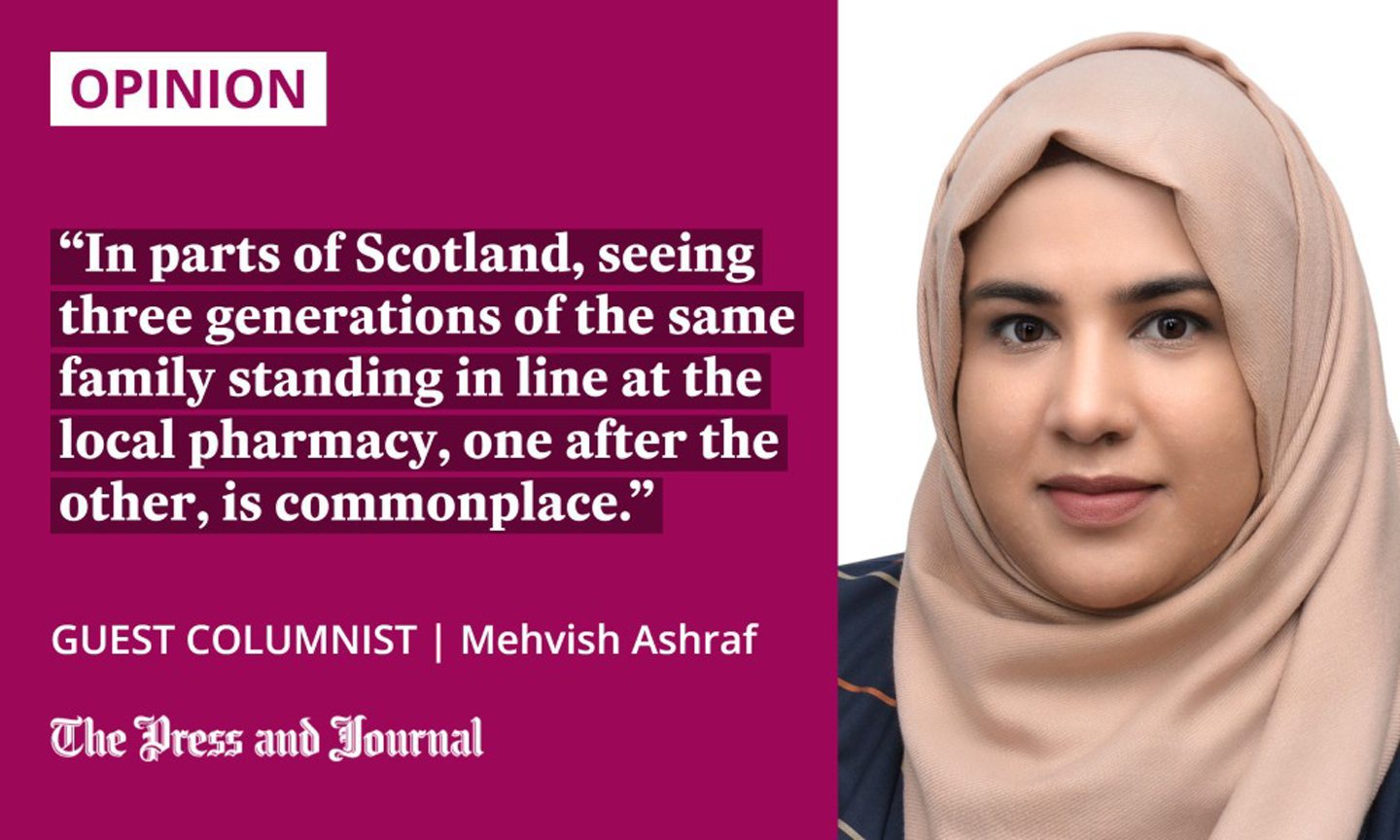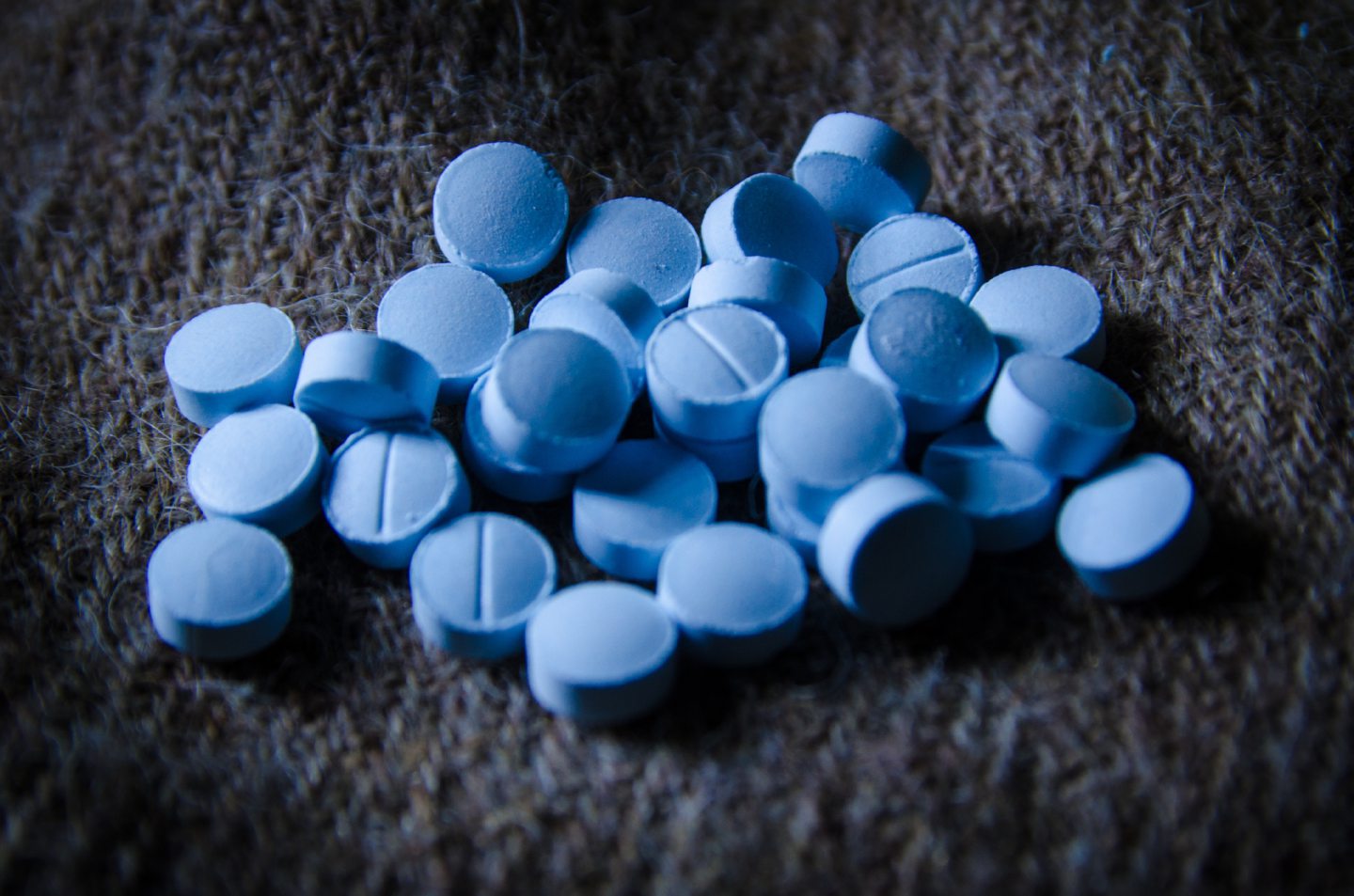“So, you have trouble with the social, too?” Grace asked as I handed over her daily methadone dose.
She meant social housing. Her question exposed the reality of what has become of patients within addictions services: generational institutionalisation.
As a result of the collective failure to lift people out of a life of drug use in Scotland, for some there is continual contact with social services, the NHS and, occasionally, the police, amongst others.
Living in that situation, you come to believe that this is normal for everyone – that your white collar pharmacist would also be having issues with “the social”, too. And the cycle continues.

In parts of Scotland, seeing three generations of the same family standing in line at the local pharmacy, one after the other, is commonplace: the only striking point that the grandparent has survived so long.
Normalisation of drugs and their harms, caused by a lack of appropriate support, financial stability and effective public health interventions, has left pockets of Scottish communities struggling to comprehend life without illicit drug use.
The result? You are 18 times more likely to die from a drug death from within these communities than in the country’s most affluent. Just as the children of smokers are more likely to be smokers themselves, when witnessing drug use you are more likely to use.
Only adequate and targeted investment can break the cycle
The ordinariness of drug taking leads to an increase in polydrug use, where multiple substances – illegal and legal – are used together. This issue is particularly rampant in the former Grampian region.
Deprivation and hopelessness result in looking for an escape that inevitably crashes you back to a reality much harsher than the one you fleetingly left
Prescription methadone is taken with heroin; users collect their prescription and clean needles simultaneously. Add street Valium to this concoction and the resulting record-breaking drug death figures in Scotland – described by the Scottish Government as a “national disgrace” – are not surprising.
Often, addiction to a substance such as heroin, alcohol or cocaine is an attempt to fill a void. Experiences such as sexual abuse and childhood neglect – particularly if a parent was an addict – or a general feeling of societal ostracisation can lead to addiction issues.
Deprivation and hopelessness result in looking for an escape that inevitably crashes you back to a reality much harsher than the one you fleetingly left.
Adequate and targeted investment in breaking the cycle that leaves so many people with no hope of ever seeing anything better is desperately needed.
Drugs crisis has been exacerbated by the pandemic
This public health crisis has been exacerbated by the pandemic, further isolating the already isolated from services they rely on for support. The reduction of the drug service and it going online has had a profound effect on the wellbeing of those most in need.
Frontline services which remained physically open, such as pharmacies, were suddenly expected to take on responsibilities that would have been met elsewhere within the health system (or, sometimes, not at all).
Initiatives aimed at tackling health and public order aspects of drug use have pushed for safe consumption rooms. However, these have been blocked by the UK Government.
In a month Scottish drug deaths figures will be released for 2021, another year of the worst death rate in Europe, another year more than 3x higher than rest of UK
Another 1200+ deaths, sadly an established normal for Scotland
It does not need to be this way 💔
— Peter Krykant (@PeteKrykant_OPC) June 13, 2022
These sites make drug use that is already occurring as safe as possible by providing clean paraphernalia, thereby reducing blood borne diseases such as HIV and hepatitis. Moreover, overdose prevention drugs are on site, with trained staff to administer. Staff can also help a user to take the first steps towards recovery, if they wish.
Such is the effectiveness of safe drug consumption rooms, that no deaths have occurred in any across the world. Yet, Scotland is left behind in the absence of these.
The situation prompted one recovered drug user and activist, Peter Krykant, to set up his own safe consumption van that, reportedly, even Police Scotland have referred users to.
The irony is that Krykant was charged – then had charges dropped – by the same police force for running the service. We need joined-up thinking and action.
Good intentions are not hitting the mark
The Scottish Conservatives have tabled a “Right to Recovery” Bill, with the aim of enshrining in law the right to receive treatment for addictions, in particular residential rehabilitation. Whilst this may be well intentioned, if the services and capacity to underpin that right do not exist, will it really help those struggling with addictions in a meaningful way?
Above all, we need the Scottish Government and health boards to be up to the task
The Scottish Government has pledged £250 million towards tackling drug deaths. This needs to be felt at the frontline, with better pay and conditions for workers who support patients, a more manageable workload, and services that are genuinely person-centred.
Further investment in pharmacy teams to expand support and signposting would also benefit services tremendously.
We need to take the stigma and judgement out of being an “addict”, and treat patients holistically, both at a time and in a place where it is most suitable for them. Allowing this flexibility accommodates erratic lifestyles and employs the understanding that recovery is not linear.
Communities need access to rehabilitation beds quickly and locally, and we need to push for legislative change of the 1972 Medicines Act to allow the opening of safe consumption rooms.
Above all, we need the Scottish Government and health boards to be up to the task. The price of failure is far too high, with death and further misery for some of our most vulnerable Scots, just like Grace.
No more warm words: give our communities and our health workers real action.
Mehvish Ashraf is a pharmacist and writer, interested in health inequality
- This article is part of a partnership with Pass the Mic, a project focused on increasing representation of women of colour in Scottish media



Conversation